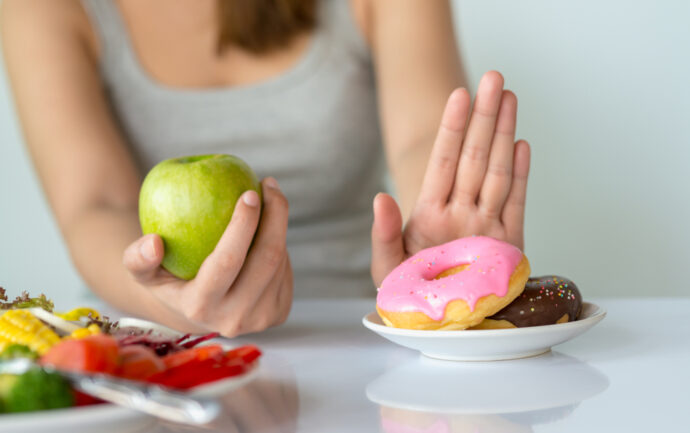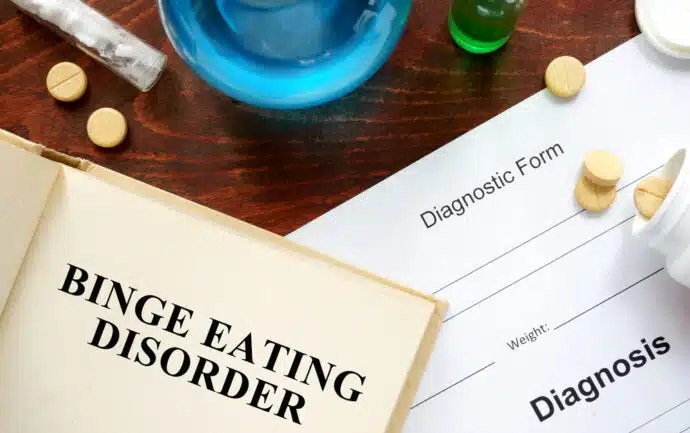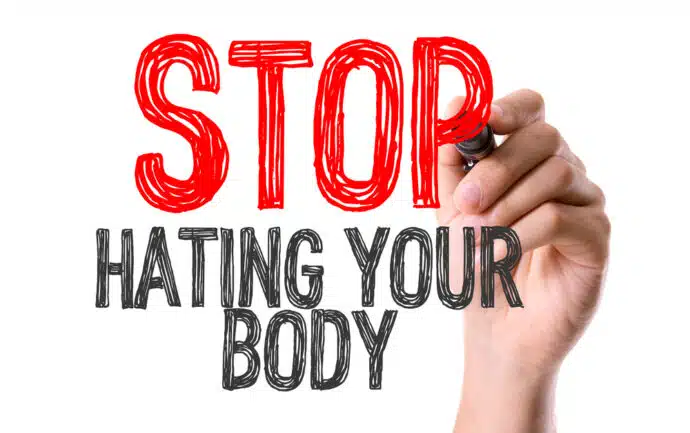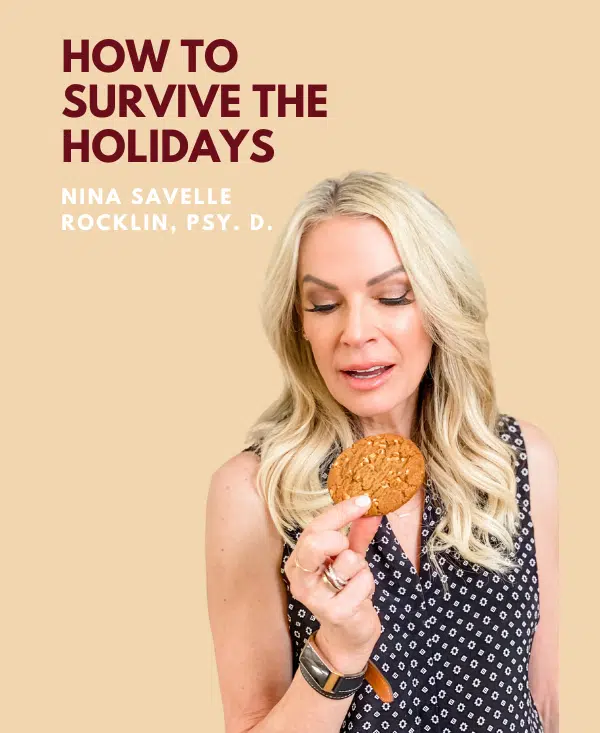Table of Contents
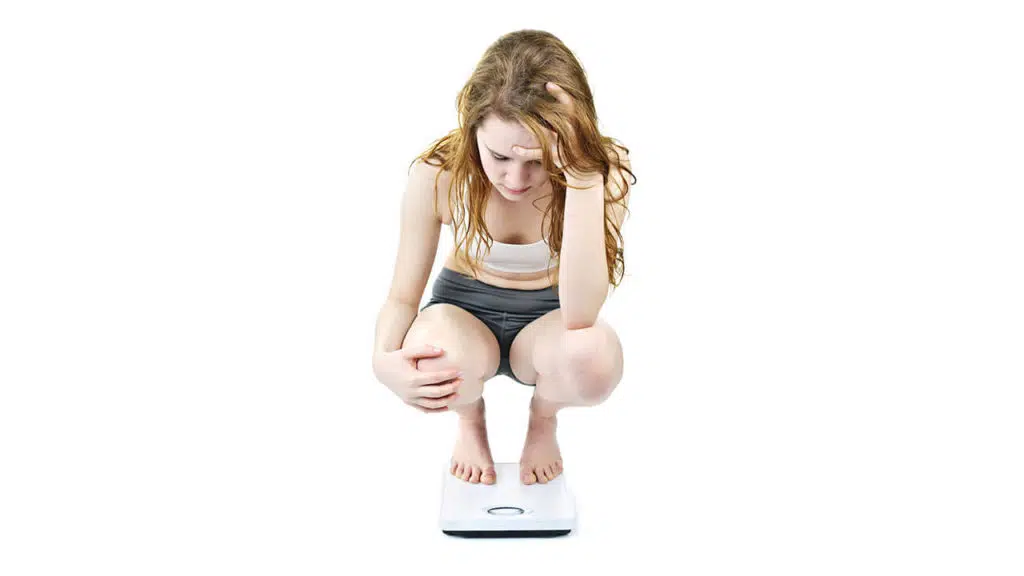
Tried out various diets, yet nothing seems to work? The real problem with emotional eating is never about the food. You can cut calories and exercise, but nothing will work in the long run until you address the thing that’s eating you.
You may feel that you’re a diet failure. But it should never be seen this way. There’s a reason for the yo-yo diet cycle. When you uncover that reason and change your relationship with yourself, things with food will change for good.
The Power of Words
Words can be powerful. They can hurt us, and they can also heal us. When we speak to ourselves in a harsh, judgmental, or critical way, we might eat just to escape our own mean voice.
When we change the way we talk to ourselves and how we feel about ourselves, we don’t need food for comfort or distraction. Changing our words is a slow, steady process, but it’s a long-lasting solution, unlike dieting.
Why Don’t Diets Work?
Many of us use food to cope with painful emotions. Some common patterns related to emotional eating are –
- Feeling resentment when we push away our own needs to please others
- Being a perfectionist in the way we behave and worrying about making mistakes.
- Feeling lonely and empty and eating to symbolically fill the void
- Fear of losing control and suppressing negative emotions.
Emotional eating is what I call a “frenemy.” It is a friend in that it helps you cope somehow, but it also is an enemy in that it creates guilt, shame, and feelings of failure.
People who struggle with emotional eating tend to develop all-or-none thinking. They begin to judge various things in life as “good or bad” with nothing in between. They feel good about themselves if they eat salad and bad about themselves if they eat anything forbidden.
Food now comes with a tag on its unhealthy or healthy, and eating carries a moral judgment. Over time, this kind of thinking creates deep shame whenever the so-called “bad” foods are consumed, no matter the quantity. The good news is that it’s possible to break the cycle of emotional eating.
Breaking Free from Emotional Eating

Practicing compassion, learning self-care, and seeking support are some of the best things you can do to start breaking free from binge eating.
Compassion and Acceptance
When we are compassionate to ourselves, we validate, acknowledge and reassure ourselves. That’s how we comfort ourselves with words instead of comfort food. So, instead of slave-driving yourself, practice being a supportive coach.
If you wouldn’t say something to a child, a friend, or a loved one, don’t say it to yourself.
Explore Other Ways to Cope with Stress
Your next step in dealing with emotional eating is to explore other ways to deal with stress. You can approach a psychotherapist to work towards healing.
Some other ways you can alleviate stress include writing in a journal, talking with friends, and setting a few minutes to relax and decompress from the day.
There are other ways to experience relief from stress other than by eating. Experiment with various activities to discover what works for you best.
Seek Out Support
In moments of anxiety, sadness, or failure, avoid isolation. We are social creatures, and a phone call with friends or family can quickly boost your mood when you feel down. There are also support groups online where you can engage with others battling emotional eating, so you don’t feel so alone.
Develop Positive Self-Talk
It is essential to work on having positive self-talk every time you experience a failure. People feel shame and guilt when they have an episode of emotional eating, leading to a cycle.
Thus, instead of feeling down, consider this setback as a learning experience. It will be an opportunity to prepare for the future. When you reach milestones – reward yourself with self-care activities. For example, go for a walk, take a leisurely bath, and others.
Final Thoughts
Dieting is a short-term solution to a problem that often isn’t even about food. Suppose you’re eating in a way that feels unhealthy and makes you unhappy. In that case, you’re likely using food to manage something painful or distressing. That’s the basis of emotional eating. The good news is that once you understand why you’re emotionally eating, you can find new ways to cope. That’s how you lose weight without dieting and make peace with food for good.
Get 'The Binge Cure: 7 Steps to Outsmart Emotional Eating'
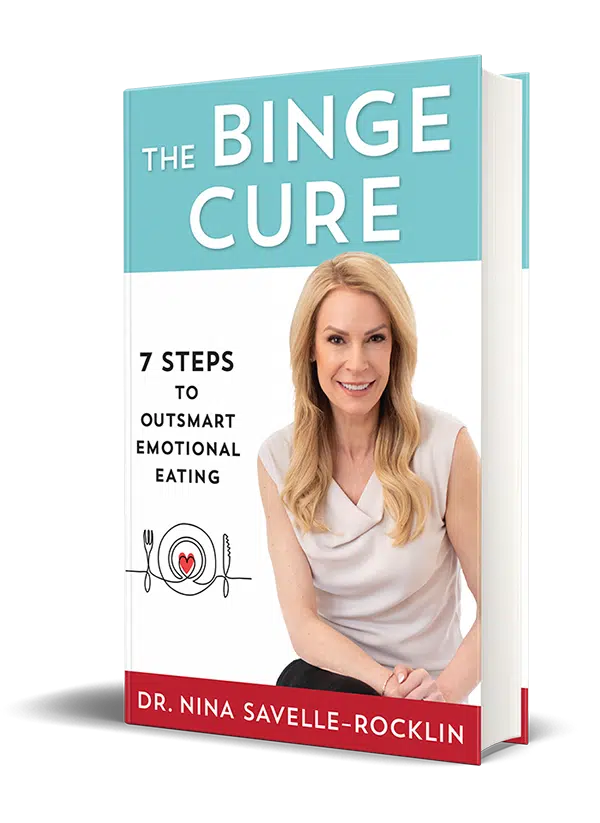
The Author

Dr. Nina Savelle-Rocklin is a psychoanalyst, author and radio host specializing in binge eating disorder. She is the author of The Binge Cure: 7 Steps to Outsmart Emotional Eating and Food for Thought: Perspectives on Eating Disorders, and co-editor of Beyond the Primal Addiction. She hosts The Dr. Nina Show radio program on LA Talk Radio.
Related Blogs
